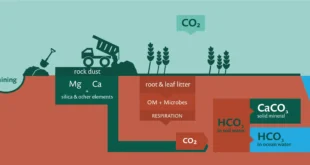Union Power Minister informed the Parliament that 3377 MW capacity allocated to States and 4.3 lakh people have benefited from the Programme.
What is solar energy?
- Solar energy is obtained from the sun.
- Solar energy is less costly in comparison with electrical energy.
- The solar energy can be used for both household as well as for commercial purposes.
- In a solar rooftop system, solar panels are installed inside the system for electricity production.
- This solar panel produces energy which can be used for different purposes.
- Benefit: it takes less space and produces efficient energy for multiple usages.
Solar rooftop subsidy scheme
- Solar rooftop subsidy scheme is an initiative by the Government of India to promote solar rooftop usage in the country.
- The central government encourages use of renewable energy and provides subsidies on solar rooftop installations to consumers.
- The central government pays a 30% subsidy for installation of rooftop solar plants to states in general categories.
- For special states/UTs such as Himachal Pradesh, Uttarakhand, Sikkim, Jammu & Kashmir and Lakshadweep, the central government gives subsidies of up to 70%.
- To avail subsidy, the average installation cost of a rooftop PV system without subsidy should be nearly Rs 60,000 to Rs 70,000.
- To avail generation-based incentives, the consumer should generate 1100 kWh – 1500 kWh per year.
SOURCE: THE HINDU, THE ECONOMIC TIMES, PIB
 Chinmaya IAS Academy – Current Affairs Chinmaya IAS Academy – Current Affairs
Chinmaya IAS Academy – Current Affairs Chinmaya IAS Academy – Current Affairs



